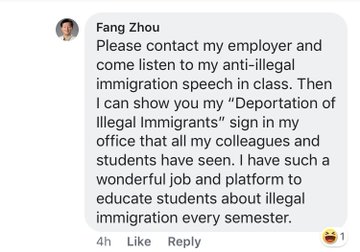In an interview with Fox Business‘ Maria Bartiromo for “Sunday Morning Futures,” Page said that the surveillance warrant activity increased shortly after he and Halper met for the first time at a research institute symposium in Cambridge, England, in July 2016.
Page’s comments follow a court filing Thursday by the Justice Department in which more details were provided regarding that critical period right before Halper allegedly acted on behalf of his FBI handlers to get additional information on POTUS Donald Trump’s future National Security Adviser and retired Army Lt. Gen. Michael Flynn, who headed up the Defense Intelligence Agency for a time during the Obama regime.
According to Page, just a few days after a January 2016 phone call from Flynn, then the incoming national security adviser, to Russian Ambassador Sergey Kislyak that was noted to in the court filing, Russian-born U.K. academic Svetlana Lokhova said Halper suddenly contacted her to gain information on Flynn.
When asked about the timing of all of this, a source familiar with the various events noted that “nothing is a coincidence” when it comes to Stefan Halper, noting further that Kislyak was most likely under U.S. surveillance because he is a Russian official.
Interestingly, Page said he and Halper go back years in terms of knowing each other.
“I had a longstanding relationship with Professor Halper,” Page told Bartiromo. “I always believe in ‘innocent until proven guilty,’ but my conversations with him intensified right in the month before my illegitimate FISA warrant in September 2016, when all these defamatory articles are being placed by the [Democratic National Committee].”
Page has sued the DNC and other actors for defamation related to accusations that he was colluding with Russian agents. The FBI, in its Foreign Intelligence Surveillance Act (FISA) application, flatly called Page “an agent of a foreign power.” Page has not been charged with any wrongdoing despite months of surveillance, and the dossier that the FBI relied upon in its FISA application has largely been discredited as a political document rife with inaccuracies.
In its warrant application, the FBI assured the FISA court on numerous occasions that other sources independently corroborated the dossier’s claims but did not clearly state that the dossier’s author worked for a firm hired by Hillary Clinton’s campaign.
“Professor Halper was being very positive, you know, like a Harriet Tubman figure. He understands sort of the the injustices, or he presented himself as understanding that …… and I sort of trusted him,” Page said.
According to what’s been publicly divulged thus far, the FBI formally opened its counterintelligence probe into the Trump campaign July 31, 2016 — or several days after Page said he first met Halper at the symposium. As the probe into ‘Russiagate’ by Attorney General William Barr and U.S. Attorney John Durham continues, we may eventually learn that the Obama regime actually began its “Spygate” operation much sooner, some have speculated.
As for the FBI’s behavior, House Intelligence Committee Ranking Member Devin Nunes (R-Calif.) has said he believes James Comey’s FBI excluded exculpatory evidence against Page when it filed for the FISA warrants.
“There is exculpatory evidence that we have seen, of classified documents that need to be declassified,” Nunes told Fox News‘ Sean Hannity in August 2018.
When pressed, Nunes added, “In that the Carter Page FISA, when the judges should have been presented with this exculpatory evidence that the FBI and DOJ had.”
Later, during often explosive testimony before the House, fired FBI counterintelligence official Peter Strzok swore he provided no substantive input on the application—he didn’t supply any evidence for it and was not involved in presenting it to the Foreign Intelligence Surveillance Court for approval, according to these sources, noted The Daily Beast’s Betsy Woodruff.
However, documents that were released in July 2018 made clear that Strzok did indeed provide info that was utilized to...

















